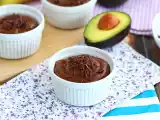Miracle Foods? Find out what really helps you slim down and reduce bloating!

The feeling of abdominal bloating can be uncomfortable and annoying. Fortunately, diet plays a crucial role in reducing this problem. By including certain foods in your diet, you can contribute to better digestion and reduce bloating.
Why do we feel bloated?
Abdominal bloating can be caused by various factors, such as
- Food intolerances: Difficulty digesting certain foods, such as lactose or gluten, can lead to gas and bloating.
- Irritable bowel syndrome (IBS): This chronic condition can cause symptoms such as abdominal pain, gas and bloating.
- Excessive consumption of processed and sodium-rich foods: These foods retain fluids in the body, contributing to bloating.
- Inadequate chewing: Eating quickly and without chewing food well can make digestion difficult and increase gas production.
Fibers:
- Sources: Fruits, vegetables, whole grains, seeds and legumes.
- Benefits: Fiber helps regulate intestinal transit, preventing constipation and reducing bloating.
Diuretic foods:
- Sources: Melon, watermelon, pineapple, cucumber, spinach, parsley, green tea, hibiscus tea.
- Benefits: They increase urine production, eliminating excess fluid from the body and reducing water retention.
Probiotics:
- Sources: Natural yogurt, kefir, sauerkraut, kombucha.
- Benefits: They balance the intestinal flora, improving digestion and reducing bloating.
Foods rich in potassium:
- Sources: Banana, avocado, sweet potato, spinach.
- Benefits: Potassium helps regulate fluid levels in the body, reducing water retention.
Other beneficial foods:
- Cayenne pepper: Stimulates metabolism and digestion.
- Ginger: Has anti-inflammatory and digestive properties.
- Aromatic herbs: Such as mint, coriander and basil, they aid digestion.
More tips to reduce swelling:
- Avoid fatty and processed foods: These make digestion difficult and can cause bloating.
- Reduce your intake of foods high in sodium: Sodium retains fluids in the body, contributing to bloating.
- Chew your food well: Proper chewing facilitates digestion and reduces gas production.
- Exercise regularly: Physical activity stimulates bowel function and helps reduce bloating.
- Manage stress: Stress can affect the digestive system and increase bloating.
Important:
If bloating is persistent or accompanied by other symptoms such as abdominal pain, weight loss or changes in stools, consult a doctor.
Conclusion:
Diet plays a key role in preventing and treating abdominal bloating. By including foods rich in fiber, water and nutrients, and avoiding processed and fatty foods, you can contribute to better digestion and reduce abdominal discomfort. However, it's important to remember that each person is unique and what works for one individual may not work for another. Consult a nutritionist for personalized advice.

Japanese cucumber salad

Watermelon and cucumber salad

Vegan chocolate dessert cream - chocolate, banana, avocado
 Mirella Mendonça
Mirella Mendonça
Comments